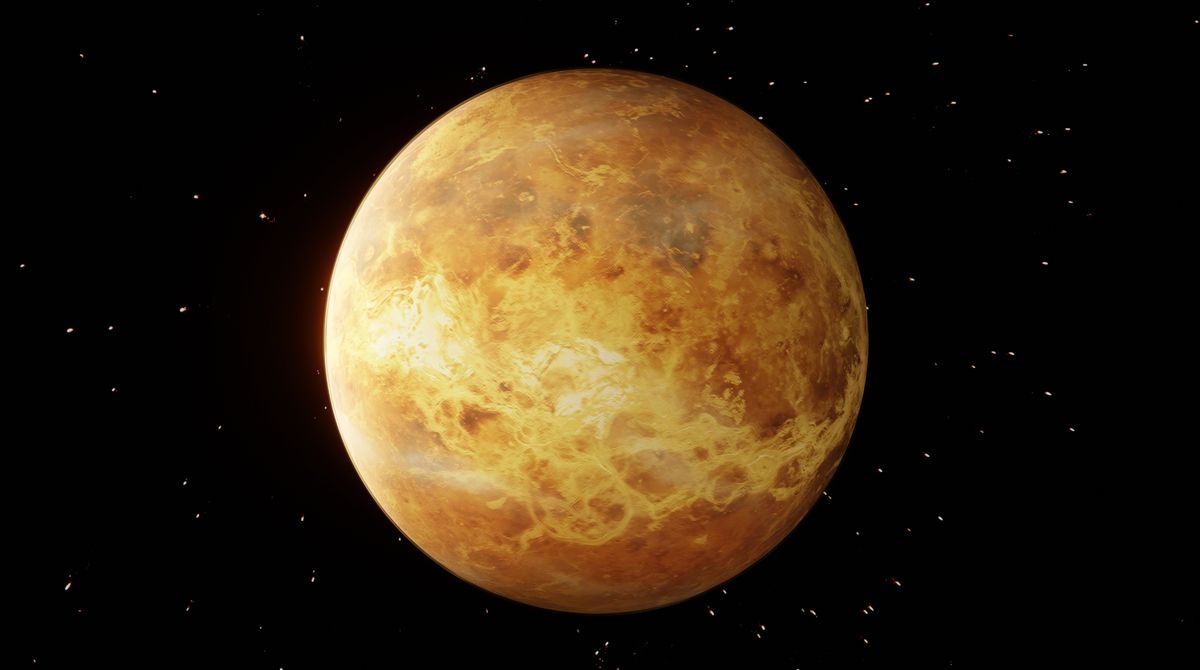ThunderKiss1965
Platinum Member
Clown college ?My thinking is generally accepted by most in our college system.
Follow along with the video below to see how to install our site as a web app on your home screen.

Note: This feature currently requires accessing the site using the built-in Safari browser.
Clown college ?My thinking is generally accepted by most in our college system.
We need to move venus outwards to 90 million miles using massive solar sails.. Solar sails hundreds of miles in size causing displacement that would allow for the planet to drift outwards. This would probably take hundreds of years, but we could place the planet into a cooler orbit and terraform the atmosphere into a more habitual one.
Ruling over two similar sized planets would be nice.
Venus is hot due to the greenhouse effect, the dense atmosphere is just efficient at trapping the Sun's radiation.It wouldn't matter. Venus is hot because of the density of its atmosphere.
No it isn't. It's hot because of the density of the atmosphere which is orders of magnitude greater than that of Earth.Venus is hot due to the greenhouse effect, the dense atmosphere is just efficient at trapping the Sun's radiation.
No it isn't. It's hot because of the density of the atmosphere which is orders of magnitude greater than that of Earth.
Go take a science class.

Two similar sized planets on the same orbital path around the sun, what could go wrong ? I'm not sure the Sun puts out enough solar wind to move something the size of a planet no matter how big the sails not to mention the enormous amount of material needed.
How about a sun shade at the Lagrange point between the Sun and Venus after the temperature starts to get lower drop a bunch of bacteria onto the planet that converts CO2 to O2.
Replace the word "easy" with the word "impossible".It's easy to get Venus to spiral out to Earth's orbit ... but without reverse thrust, she'll keep spiraling out ... solar sails won't stop Venus ...
it lost most of its lighter gasses like Oxygen from the solar winds.
Replace the word "easy" with the word "impossible".
Impossible for us at our level of technology.How are you defining "impossible" ...
When was the last such event?astronomical consensus has planets moving back and forth all the time in our solar system
No, Venus would be vaporized.... if a Jupiter-sized asteroid slammed Venus, she would be ejected from the solar system ... easy ...
Solar winds. It's a propellant free way to slowly move a small payload across space. It's been tested and works. Trying to scale that up to move a planet would never work.
Clown college ?
Impossible for us at our level of technology.
When was the last such event?
No, Venus would be vaporized.
Oxygen is strictly the product of biology ... Venus never had any ...
It's pressure, like westwood said ...

Do you have a neutron star nearby?Neutron Stars collide every couple of weeks ... so I'm guessing last Thursday ... and
some would be ejected, some would fall into the sun or others planets and some would fall into orbit around the sun or a planet.Venus vapor would be ejected from the solar system ... the solar system himself doesn't have an atmosphere ... vapor on an ejection trajectory will be ejected ...
The only way to move a planet is with a bigger planet or a star if you have one. You can't physically pull it, it is not a billiard ball, more akin to a lightly-packed, snowball.I'm sorry you don't think the OP is a clever use of Kepler's Third Law of Planetary Motion ... I did ... just moving Venus out to Earth's orbit will cause her year to be equal to Earth's ... despite the mass difference ...
I don't think we'll ever live on Mars but we could terraform Venus into a comfortable planet for us.Well that may be, however I have read before someere else that its belived Venus once had oceans. But there may have been somethig that slowed down and reversed its rotation, such as a planetary collision.

Venus' Atmosphere: Composition, Climate and Weather
Venus' atmosphere has led to an extreme version of the same greenhouse effect causing climate change on Earth.www.space.com
"Researchers think Venus used to be an Earth-like planet covered with oceans. The sun was cooler and dimmer billions of years ago, but as it became brighter and hotter, Venus' ocean started to evaporate. This evaporation is thought to have kicked off Venus' runaway greenhouse effect. Large amounts of water vapor, which is a greenhouse gas, evaporated from the oceans and wound up in the atmosphere, warming the planet and causing even more evaporation of the oceans.
Researchers think the evaporation of Venus' oceans triggered the halting of the planet's plate tectonics, the geologic system on Earth that causes the movement of pieces of a planet's crust. Plate tectonics also causes carbon in rock to be periodically pushed deep underground. Researchers think that without plate tectonics, Venus' carbon ended up in the planet's atmosphere, exacerbating the greenhouse effect and turning it into the extreme environment we know today."
I don't think we'll ever live on Mars but we could terraform Venus into a comfortable planet for us.
Split the CO2 into oxygen and coal (or diamond?)Where do you put the extra atmosphere?
Split the CO2 into oxygen and coal (or diamond?)
What could possibly go wrong?We need to move venus outwards to 90 million miles using massive solar sails.. Solar sails hundreds of miles in size causing displacement that would allow for the planet to drift outwards. This would probably take hundreds of years, but we could place the planet into a cooler orbit and terraform the atmosphere into a more habitual one.
Ruling over two similar sized planets would be nice.